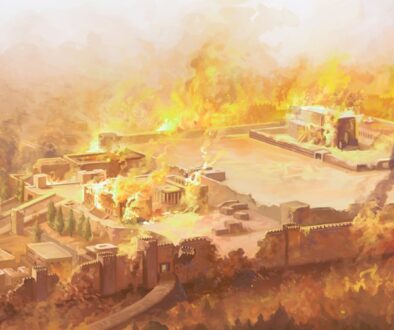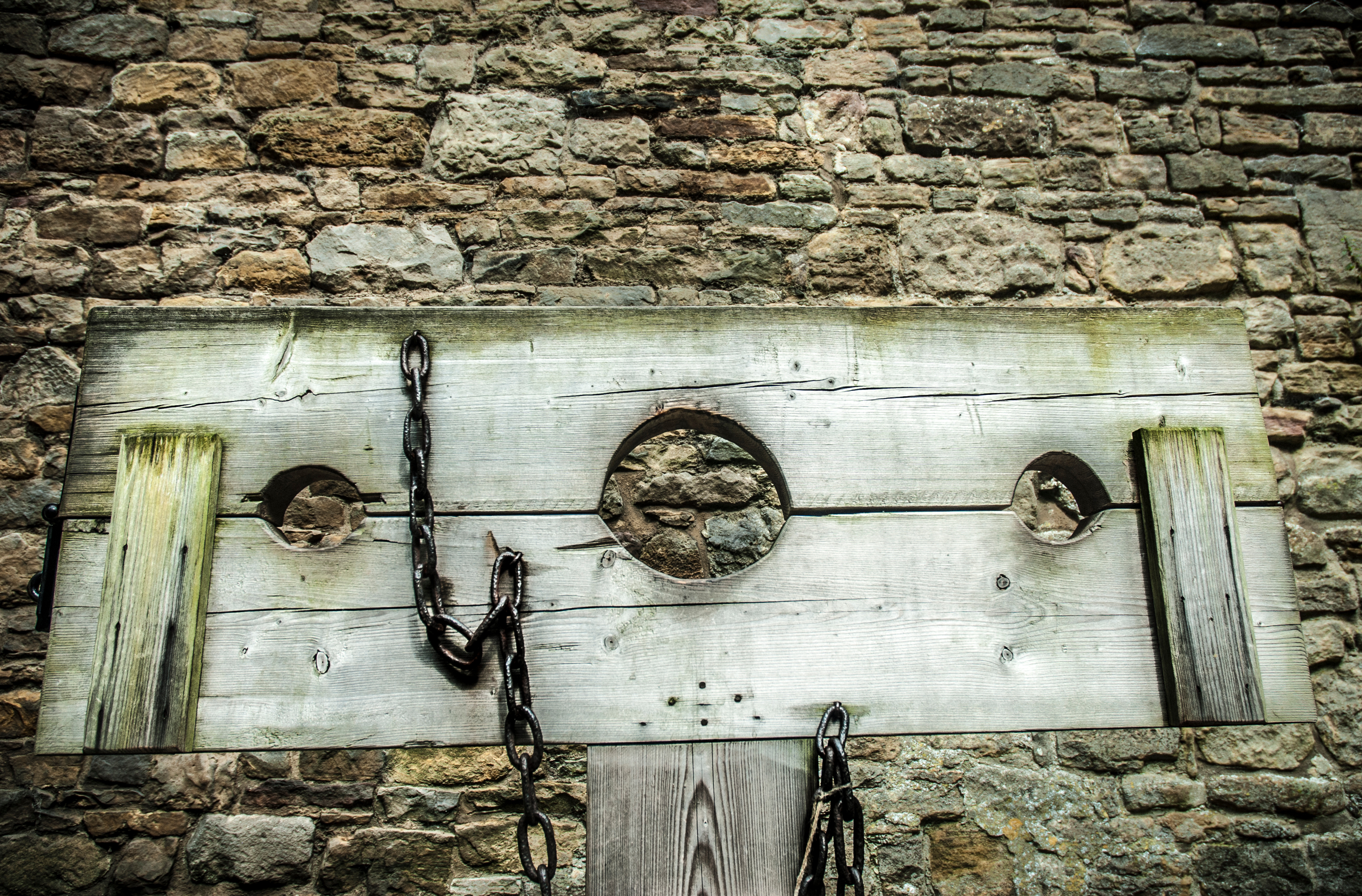1 Kings 2 Solomon Begins

Solomon begins his reign by dealing with the people David included in his last requests. But he also has to deal with his brother Adonijah.
When I first heard the stories of the men running to the altar and taking hold of the horns, I was thinking about the altar of incense inside the Tabernacle. I wondered why God didn’t strike them dead on the spot, as only Levites were allowed in there. But then I realized that they were holding the horns of the Brazen altar, the place where sacrifices were made. It was consecrated to the Lord, but the everyday people could approach it.
This is the ‘place of safety’ that both Adonijah and Joab run to. Adonijah is pried away from it, but Joab meets his death there. Adonijah was spared because of a conditional promise, and he breaks those conditions right away. Let’s join Solomon as he begins his reign over Israel. We will allow the Spirit to guide our journey.
♥ ♦ ♥
Solomon’s first moments on the throne brought him face to face with a ‘life and death’ decision. Adonijah begged his forgiveness for trying to take the throne. Solomon ‘pardoned’ him, but there were conditions to that pardon. Solomon had said; “If he will show himself a worthy man, not one of his hairs shall fall to the earth, but if wickedness is found in him, he shall die” (1 Kings 1:52).
Adonijah wrestles with his place. “I was supposed to be king” he shouts into the mirror. He knew of his father’s plan to make Solomon king LONG before it happened. He had hoped that his frail health would have made him forget, or that he would die before he could complete the task. Now, he still wears the ‘worthless’ title of ‘prince’ or ‘son of the king’. It gains him nothing.
“I have to find a way to take the throne. It should have been mine all along” Adonijah tells himself. He paces his chambers while racking his brain for a solution. Finally, an idea emerges from the dark places in his mind. “If I marry the king’s servant Abishag, I can lay claim to succession to his throne.”
This settled in his heart, the next step is figuring out how to make it happen. There is one person Solomon faithfully listens to; his ima, Bathsheba. Adonijah decides to ask her to intercede on his behalf.
Adonijah watches and finds a time when Bathsheba is alone before approaching her. Bathsheba sees him as he approaches. She isn’t certain how to interpret his coming to her.
“Do you come peacefully?” (1 Kings 2:13b), she asks.
“Peacefully” (1 Kings 2:13c) replies Adonijah. “This is it” he thinks to himself. Bathsheba seems willing to listen, so Adonijah continues. “I have something to say to you,” (1 Kings 2:14a).
Bathsheba is willing to listen. She is curious to know the purpose behind this visit. “Speak”, (1 Kings 2:14b), she says.
Adonijah takes a deep breath before launching into his reasons for coming. “You know that the kingdom was mine, and that all Israel fully expected me to reign…”
Adonijah can see Bathsheba getting ready to protest, but he quickly continues. “… However, the kingdom has turned about and become my brother’s, for it was his from the Lord…”
Saying that the Lord gave it to Solomon calms Bathsheba. She settles down to listen again. Adonijah needs to know that she is still willing to listen, so he asks for her agreement to hear him out. “… And now I have one request to make of you; do not refuse me” (1 Kings 2:15-16a).
“Speak” (1 Kings 2:16b), Bathsheba says for the second time.
Here it comes. The ‘meat’ of Adonijah’s request. He hopes that Bathsheba won’t ‘connect the dots’ and will simply do as he asks. “Please ask King Solomon—he will not refuse you—to give me Abishag the Shunammite as my wife” (1 Kings 2:17)
It worked! Bathsheba sees no problem with Adonijah’s request and says, “Very well; I will speak for you to the king” (1 Kings 2:18).
Adonijah has to maintain his calm as Bathsheba turns and walks away. He hopes she goes to Solomon right away, but he can’t push her to do so or she may become suspicious. He returns to his home to await the summons of the king to come and receive his bride!
Bathsheba decides it is best to get this over with now instead of delaying it. “What harm can it do to grant his brother this simple request” thinks Bathsheba as she makes her way to the throne room.
Solomon sees his ima standing at the door. He rises from his seat and makes his way to her. When he gets near her, he bows down to show his respect to her as his mother. After he rises, he takes her hand and leads her into the throne room. As they walk, he calls out to one of the servants, “Bring a chair for the ‘queen mother’ and sit it on the right hand side of my throne.”
As soon as the two of them are seated next to one another, Bathsheba begins presenting Adonijah’s request. Her first statement sets the tone for their conversation. “I have one small request to make of you; do not refuse me” (1 Kings 2:20a).
Solomon thinks nothing amiss about his ima’s words so he easily replies with a positive answer to her. “Make your request, my mother, for I will not refuse you” (1 Kings 20b).
Without finding any fault in her request she begins; “Let Abishag the Shunammite be given to Adonijah your brother as his wife” (1 Kings 2:21)
Solomon’s mind is quick and sharp. He sees the folly behind such a request. He is angry. Not so much with his ima, but with Adonijah for trying to use her in this fashion.
“And why do you ask Abishag the Shunammite for Adonijah? Ask for him the kingdom also, for he is my older brother, and on his side are Abiathar the priest and Joab the son of Zeruiah” (1 Kings 2:22)
Solomon gets up and starts pacing the room. He stops and raises is hand in the fashion for taking an oath. “God do so to me and more also if this word does not cost Adonijah his life! 24 Now therefore as the Lord lives, who has established me and placed me on the throne of David my father, and who has made me a house, as he promised, Adonijah shall be put to death today” (1 Kings 2: 23-24).
Solomon returns to his throne and calls for Benaiah the son of Jehoiada. As soon as he enters, Solomon gives him is orders.
“Go and find Adonijah. Strike him down where he stands. He has proven himself this day to be a man of evil intent by trying to use the mother of the queen to take the kingdom from my hands.”
Benaiah bows and goes out in search of Adonijah immediately. He finds him at his home, awaiting news from the throne. Benaiah beats upon the door of his house and Adonijah opens it right away. Seeing Solomon’s guard raises his hopes.
“Do you have news for me from the throne” asks an eager Adonijah.
“I certainly do”, replies Benaiah as he draws his dagger and runs Adonijah through with it. As Adonijah lies bleeding on the ground, Benaiah says, “There is your answer for attempting to take the throne from my lord King Solomon.”
Benaiah sends word back to Solomon that Adonijah breathes no more. The portion of the matter is closed in Solomon’s mind. Bathsheba will carry a bit of guilt over not recognizing what Adonijah was really up to. She vows to be more careful in the future with ‘requests’ for the king’s ear.
There are two others, though, who had stood with Adonijah that remain to be dealt with; Abiathar and Joab. David had asked for Joab’s life in his final requests, but he had said nothing of Abiathar. Solomon decides to deal with Abiathar first.
He calls out to one of his guards standing in the throne room. “Bring Abiathar to stand before me.”
The guard bows and goes in search of Abiathar. He finds him in the outer courts of the Tabernacle.
“The king wishes to see you”, the guard informs Abiathar.
“Did he way what it is regarding?”
“He did not, and it is not my place to question the king.”
“Very well. I will accompany you.”
“You bet your last shekel you will”, thinks the guard as the two of them make their way back to Solomon.
Abiathar stands before Solomon. He has no idea what to expect, only that he was told to come. Solomon fixes him with a stern stare.
“Go to Anathoth, to your estate, for you deserve death. But I will not at this time put you to death, because you carried the ark of the Lord God before David my father, and because you shared in all my father’s affliction” (1 Kings 2:26).
Abiathar’s face has lost all color at Solomon’s words. He is grateful for his life, but his life as a priest has just ended. He has no doubt that Solomon has just permanently removed him from office.
Neither Abiathar nor Solomon realize that Solomon’s actions actually complete the promos God gave Eli so long ago. The Lord had promised to remove all of Eli’s descendants from the office of priest. Abiathar is the son of Ahimelech, who served as high priest when Saul killed the priests at Nob. Ahimelech is the son of Ahitub, who is the son of Phinehas, who is the son of Eli the priest.
Nothing happens in a vacuum. Joab heard about the death of Adonijah and exile of Abiathar. He knows that his life is in danger. He runs straight to the Tabernacle of the Lord. He had heard of Adonijah’s initial flight from Solomon. How he had taken hold of the horns of the Brazen altar and found safety. Joab does the same.
Zadok tries to talk Joab into releasing his hold and going home. “Please do not do this. You may bring the anger of God down on us. You must release your hold. You may stay in the courtyard for protection, but not cling to the dedicated things of the Lord.”
“Adonijah clung to the altar and the Lord did not strike him down. I will be safe from the king only so long as I remain where I am.”
Zadok gives up trying to convince Joab to turn loose. He walks away and finds a messenger. “Take word to the king of Joab’s actions.”
The messenger is ushered into the throne room and relays Zadok’s message. “Joab has fled to the tent of the Lord, and behold, he is beside the altar,”
Solomon commissions Benaiah, who was standing along the wall, to deal with the issue. “Go, strike him down” (1 Kings 2:29b).
Benaiah goes immediately to the tent of the Lord. He calls out to Joab from the entrance to the courtyard. “The king commands, ‘Come out’” (1 Kings 2:30a)
Joab is not about to go near Benaiah. If he does, he knows it will mean his death. He decides to lay a challenge before him instead. “No, I will die here” (1 Kings 2:30b), believing that surely not even the king would kill a man who is clinging to the altar of the Lord.
After several times of trying to command Joab out, Benaiah gives up and brings Joab’s reply back to the king.
“My king, I commanded Joab to come out, as you said, but he refuses. In fact, he said; ‘No, I will die here’ as his answer.”
Solomon nods. “Do as he has said, strike him down and bury him, and thus take away from me and from my father’s house the guilt for the blood that Joab shed without cause. The Lord will bring back his bloody deeds on his own head, because, without the knowledge of my father David, he attacked and killed with the sword two men more righteous and better than himself, Abner the son of Ner, commander of the army of Israel, and Amasa the son of Jether, commander of the army of Judah. So shall their blood come back on the head of Joab and on the head of his descendants forever. But for David and for his descendants and for his house and for his throne there shall be peace from the Lord forevermore” (1 Kings 2:31-33)
Benaiah bows to Solomon’s wisdom and returns back to the Tent of the Lord. He finds Joab still in the courtyard with a hand one of the horns of the Brazen altar. As Benaiah approaches Joab, he draws his sword. Joab’s eyes go wide and he grabs the altar with both hands, seeking its protection.
Joab had surrendered his sword when coming into the Tent of the Lord. He has a dagger hidden in the folds of his garment, but before he can extract it and defend himself, Benaiah strikes him down.
Benaiah’s strike is swift and sure. Joab’s lifeless hands slip from the horns as his body crumples to the ground. Benaiah calls two of the guards to carry Joab’s body from the Tent of the Lord. His body is dumped into a cart and Benaiah leads the donkey pulling it to the home of Joab.
When Benaiah reaches Joab’s home in the wilderness, he surrenders the cart to Joab’s household servants. “Burry him here. For his death is not to be honored. He shed innocent blood and his blood was shed in repayment.”
Benaiah returns to Solomon. “Joab is dead. I struck him down as he clung to the altar. He refused to release his hold. I have taken his body to his servant to bury in his own home.”
Solomon is very pleased with Benaiah’s work. “I have need of a new commander of the army. I am placing you, Benaiah, in that position. Serve the Lord well as you serve Israel and the crown.”
Benaiah bows deeply before leaving to assume his role as commander of Israel’s army.
There is but one man left to deal with whom David called out in his last requests; Shimei. Solomon calls to one of the guards; “Bring Shimei to me.”
Shimei appeared a short time later on the threshold of the throne room. Solomon motions him forward. Before Shimei has time to bow and pay homage to Solomon, Solomon speaks and gives him the conditions for keeping his life.
“Build yourself a house in Jerusalem and dwell there, and do not go out from there to any place whatever. For on the day you go out and cross the brook Kidron, know for certain that you shall die. Your blood shall be on your own head” (1 Kings 2:36-37).
Shimei will not argue. He had been waiting for a long time to see if the ‘axe’ would finally fall for his treatment of King David as he ran from Absalom. “What you say is good; as my lord the king has said, so will your servant do” (1 Kings 2:38). Shimei bows low and exits Solomon’s presence.
Shimei had a home built for himself in a corner of the city. He did not even leave to retrieve his furnishings and personal items from his old home. He sent a servant to do this task. Reluctantly, he settles into his new home.
Shimei is bitter. He apologized to David when he returned, but his sins were not forgiven, only forestalled. He half expected it, but that doesn’t mean he likes it. Shimei’s bitterness comes through into his words and actions. The ones to suffer it most are his servants.
After years of enduring Shimei’s abuse, two of his servants run away and seek refuge with the king of Gath.
Shimei hears of their whereabouts and goes out to retrieve them. As he is crossing the Kidron brook, he is briefly reminded of Solomon’s words to him years ago. “He won’t care after all this time” he thinks to himself. “And he will never know either. I’ll be back before anyone misses me.”
Shimei is successful in retrieving his slaves and slipping back into Jerusalem. But his trip did not go unnoticed. And Solomon has NOT forgotten about the conditions for Shimei to keep his life.
After learning of Shimei’s trip, Solomon summons him. Shimei is afraid, because he knows that he broke his word to Solomon. He is hoping he is being summoned for some other reason, or that he can talk his way out of it.
Solomon allows Shimei to perform all the rituals involved in displaying honor to the king before speaking this time.
“Did I not make you swear by the Lord and solemnly warn you, saying, ‘Know for certain that on the day you go out and go to any place whatever, you shall die’? And you said to me, ‘What you say is good; I will obey.’ 43 Why then have you not kept your oath to the Lord and the commandment with which I commanded you?” (1 Kings 2:42-43).
This is Shimei’s greatest fear coming true. He has on words. He tires to speak but his mouth only moves, like a fish out of water.
Solomon wants to laugh at his obvious distress, but holds himself back. He speaks instead to Shimei’s heart.
“You know in your own heart all the harm that you did to David my father…”
Shimei nods and then hangs his head in shame.
Solomon continues, and this part is NOT softened in the least. “… So the Lord will bring back your harm on your own head. But King Solomon shall be blessed, and the throne of David shall be established before the Lord forever” (1 Kings 2:44-45).
Solomon allowed Shimei to leave his throne room, but he would not let him live through this day. Solomon sent an order to Benaiah at the garrison.
“Go and strike Shimei down, for he has broken the king’s command and his vow to the Lord.”
Benaiah goes at once to the home of Shimei and strikes him down. Once the deed is done, he sends word to the king letting him know.
“Shimei is dead, my king” announces the messenger.
Solomon nods. “Just as it should be.”
Solomon’s reign has been firmly established. He is a man of his word. Even if that word is years, or more, old.
(to be continued)
Joab had MUCH to atone for. His death was well earned. But Shimei’s still troubles me. Shimei asked for forgiveness for his actions. I certain that he only asked because David was coming back into power. Was he really sorry for the words he hurled at David that day? Or was he doing the CYA ‘penance’? God knows our hearts, so maybe He authored this ‘payback’ for Shimei.
One thing is for certain. Sin has consequences. Not all of them come from the hand of another. Many of them are ‘natural consequences’ that our actions set in motions. Some are delivered through the hands of man and others through creation itself. When we repent of our sin, that doesn’t mean that we are immune to any consequences. God halts some, but walks with us through others. He doesn’t abandon us and watch us flounder about.
Father God, thank You that I have received in my life MUCH FEWER consequences than I deserve. Thank You for holding me safe in the palm of Your hand. And for touching my heart when I sin so I can bring it to You and repent. If not for Your Spirit, I have no idea where I would be. Most likely, not at Your feet. But this is the ONE PLACE I TRULY desire to be! Thank You for allowing me in.




